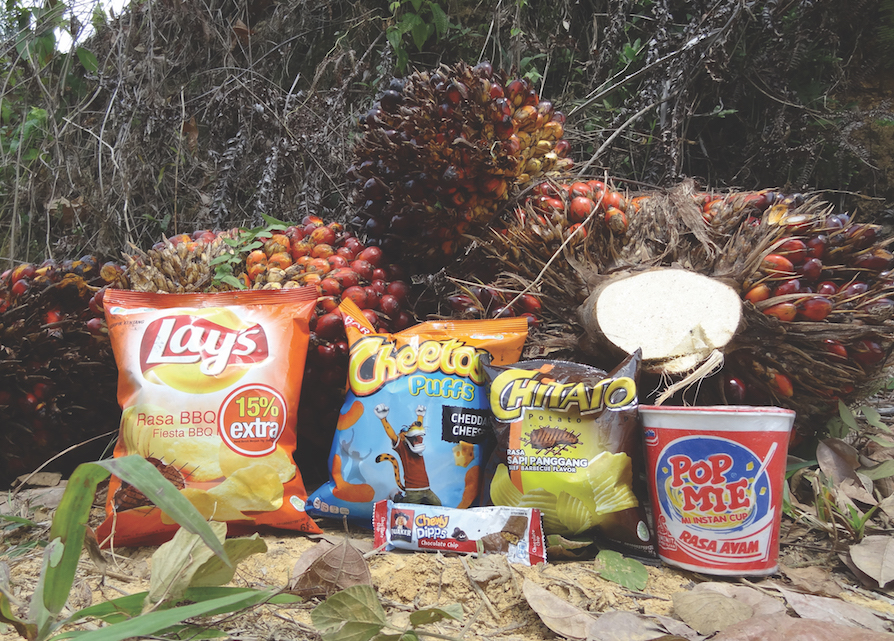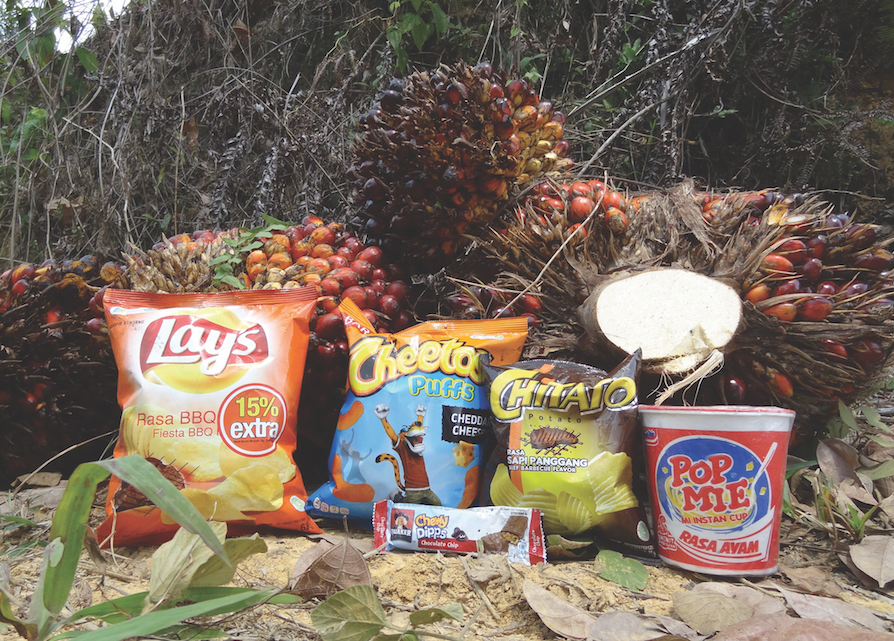PepsiCo’s Conflict Palm Oil problem is enormous, and we’re here to hold them accountable.
Today, PepsiCo announced yet another palm oil pet project that woefully fails to address the scope of its Conflict Palm Oil problem. Now PepsiCo is patting itself on the back despite the fact that it continues to source this destructive oil and do business with some of the dirtiest players in the industry like Indofood — only further driving rainforest destruction, worker exploitation, and land grabbing.

The company’s PR machine is making significant investments to convince PepsiCo’s consumers and investors that it is addressing its Conflict Palm Oil problem. But a closer look shows that the snack food giant’s actions fall very short from what’s needed to make change on the ground, where deforestation and exploitation continue.
For PepsiCo to adequately address its Conflict Palm Oil problem, it must take the following actions:
1 – Make substantial investments into ending the use of Conflict Palm Oil in its products sold worldwide, now. PepsiCo continues its attempts to greenwash its links to deforestation and human rights abuses with the announcement of pet projects but the fact is the company continues to cut costs by sourcing Conflict Palm Oil to make its products.
2 – Require its joint venture partner Indofood to align its policies and practices with the Free and Fair Labor Principles and ‘No Deforestation, No Peat, No Exploitation’ standards across all group and third-party operations, or cancel deals with the company if it does not. Acknowledging the exploitation found in Indofood’s operations is not enough and PepsiCo must set binding time-bound conditions that Indofood must meet to remain a joint venture partner.
3 – Advance respect for human rights by requiring all suppliers and business partners to uphold the UN Guiding Principles on Business and Human Rights, and provide remedy for stolen lands and livelihoods starting with Indofood and REPSA. PepsiCo can begin to take action by publicly listing its grievances, what actions have been taken to address them, and setting clear, public thresholds for exiting relationships with non-compliant suppliers and business partners like Indofood.
4 – Improve its own palm oil policy to set a clear deadline and implementation plan for achieving the ultimate goal of an independently verified ‘No Deforestation, No Peat, No Exploitation’ palm oil supply chains. PepsiCo has fallen behind its peers in raising its standards to the new global benchmark for responsible palm oil — it must go beyond sourcing RSPO oil and ensure that the implementation of its policy means that global PepsiCo products are free of Conflict Palm Oil.
5 – Play a positive role in securing land rights, improving livelihoods and protecting forests and peatlands, including the critical Leuser Ecosystem. PepsiCo must enforce an immediate moratorium on the destruction of forests and peatlands for palm oil throughout its supply chains, or it will be complicit in the ongoing destruction of the Leuser Ecosystem and other critical forest and peat landscapes.
Only when these actions are taken by PepsiCo will tangible changes for workers, communities and forests be realized. Until it does so, pet projects, half-measures and greenwash will continue to fail to address the size and scope of the PepsiCo’s Conflict Palm Oil problem.
PepsiCo, stop trying to sidestep your enormous Conflict Palm Oil problem. Rainforests continue to fall and workers continue to be exploited for the palm oil in your products and in the operations of your notorious business partner Indofood. Your half-measures are not enough. You must take robust action to end the destruction.
If you’re not on social media you can also call the company at 1 (800) 433-2652.












